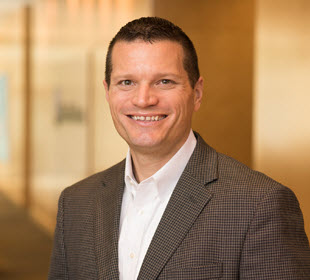In two previous posts, we have discussed the fact that social drivers of health (SDOH) are particularly critical to the health and well-being of all individuals and families. As a result, policymakers, providers, and managed care organizations (MCOs) are developing and implementing new ways to screen for the social needs of Medicaid members and ensure they are connected to the services and community-based organizations they need.
Challenges
Funding is one of the biggest challenges in the effort to address SDOHs. Historically, rules and regulations limit the use of Medicaid reimbursement for non-medical or non-clinical services. For example, if UnitedHealthcare is managing the care of a child with asthma, Medicaid can reimburse for proactive or reactive doctor visits, prescription fills, or emergency room visits. However, if it’s determined that allergens like mold or dust in the home are triggering the child’s asthma symptoms, traditional Medicaid will not reimburse for services like replacing old carpet to help prevent the child’s asthma attacks. Additionally, while Medicaid programs can pay for tenancy supports for targeted members, traditional Medicaid is prohibited from paying room and board. And though Medicaid programs are authorized to pay for a members ride to the doctor’s office, it will not pay for the member’s ride to church or other social event aimed at addressing social isolation. This financial misalignment poses a challenge to adequately addressing the social needs of individuals and families that are known to drive positive health outcomes.
Opportunities
States are continuing to push the envelope of waivers to add additional, non-clinical supports and services to their Medicaid benefits. North Carolina’s recent Medicaid waiver includes a new initiative called Healthy Opportunity Pilots. Under this five-year pilot, the State of North Carolina will allocate $650 million in dedicated Medicaid financing to increase the capacity and infrastructure of social service providers, create and improve the social service sector’s infrastructure, and pay for social services and supports. As part of the state’s demonstration requirements, ongoing evaluation of the program and services will be done to improve connectivity to local services while monitoring how access and engagement to community- based social services impacts health spend and overall well-being.
One of the most significant opportunities that will come from these efforts is the data that will be collected. As screenings are conducted, new information on the number of individuals and families who have social barriers such as housing, food, transportation will emerge. Data collected through statewide or regional resource platforms will inform us about what social service organizations exist in communities, what populations they serve and services they provide, and what capacity they have (or do not have) to meet the needs of those in their community. And data collected on how individuals and families use health care when their core social needs are met will further increase alignment of the health and social service sectors and help in the creation of new financing and delivery models to improve care and lower costs.
These data points will not only enrich current and future health care models but they also have the potential to create new roadmaps for policymakers, providers, community-based organizations, and MCOs in meeting the needs of the communities we serve.
The focus on and efforts to address the social drivers of health are the next frontier of health care. States, providers, community-based organizations, and MCOs are coming together to develop short-term demonstration pilots and longer-term initiatives. At UnitedHealthcare, we are proud to be partnering with states like North Carolina and providers and community stakeholders that are leading this effort to move away from just paying for our members’ health care to instead ensuring that we are holistically meeting their health care needs.
Read more from Kevin Moore
